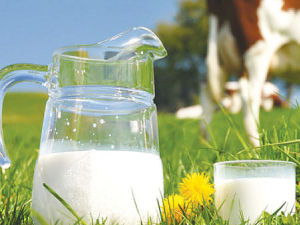Two new awards open to help young farmers progress to farm ownership
Entries have opened for two awards in the New Zealand Dairy Industry Awards (NZDIA) programme, aimed at helping young farmers progress to farm ownership.
 A recent report from ASB claims that, unlike in 2014, troubles on the Ukraine-Russia border aren't likely to cause a drop in dairy prices.
A recent report from ASB claims that, unlike in 2014, troubles on the Ukraine-Russia border aren't likely to cause a drop in dairy prices.
ASB says that, amidst the possibility of an incursion into Ukraine by Russia, it is unlikely the dairy industry will see a repeat of 2014 when conflict between the two countries led to a crash in dairy prices.
“Back then, dairy prices fell more than 40% over the course of the year following Russia’s decision to ban EU agriculture exporters amidst tensions with the west over eastern Ukraine,” the bank’s Commodities Weekly report says.
However, global dairy flows are in a different position this time around.
“EU dairy exports to Russia have collapsed following the previous round of sanctions so another lake of milk won’t be flooding on to the market any time soon,” the report says.
“What’s more, the 2014 conflict took place at a time when global dairy production was ramping up following good weather and the lifting of European production caps, all whilst Chinese purchases were slowing.
“This time around, global dairy supply is looking tight, and the appetite among buyers is ferocious,” it says.
The report also states that any sanctions placed on Russia, as it amasses troops at the Ukrainian border, are unlikely to have a direct impact on other big New Zealand export sectors.
“NZ’s exports to Russia have recovered since their crash in the aftermath of that previous round of tensions (and sanctions) back in 2014, but it remains insignificant as an NZ export partner,” the report states.
The indirect effects of an invasion on global grain prices may be more meaningful, the report states.
It claims that Ukraine and Russia are the world’s second and third largest exporters of cereals, collectively supplying 15% of world exports.
“On its own, Ukraine supplies about 13% of global maize exports with much production taking place in eastern areas which are most vulnerable to conflict.
“The impact on global feed prices will depend on the nature of any conflict and will be difficult to predict, but Kiwi farmers would be prudent to prepare for further volatility over the months ahead.”
Donald Trump's latest tariff tantrum has again thrown the world of trade into a new round of turmoil and uncertainty, and NZ is caught up in it.
The third edition of the NZ Dairy Expo, held in mid-February in Matamata, has shown that the KISS principle (keep it simple stupid) was getting a positive response from exhibitors and visitors alike.
Twenty years ago, South African dairy farm manager Louis Vandenberg was sent to a farm in Waikato to provide training on Afimilk technology.
Strong farmgate milk price is helping boost investment on farms, says PGG Wrightson chief executive Stephen Guerin.
Fonterra's 460 milk suppliers in Australia, who will switch to Lactalis end of this month, are unfazed with the impending change.
The 5+ A Day Charitable Trust has launched a collection of affordable recipes designed to turn everyday vegetables into seasonal stars.

OPINION: A mate of yours truly reckons rural Manawatu families are the latest to suffer under what he calls the…
OPINION: If old Winston Peters thinks building trade relations with new nations, such as India, isn't a necessary investment in…